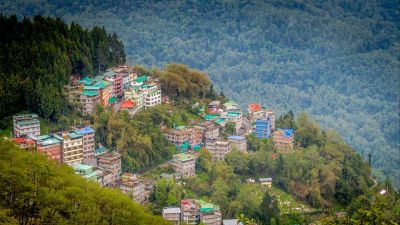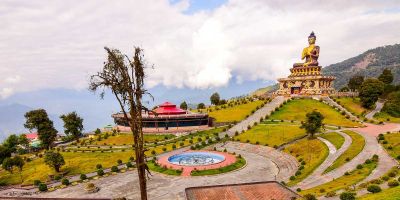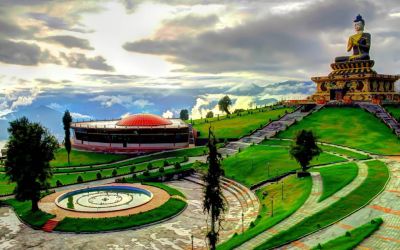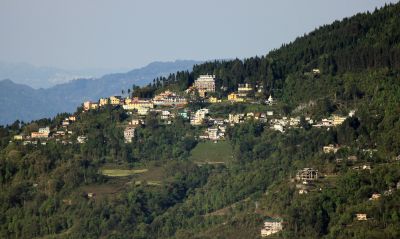Living Sustainably: Lessons from Sikkim’s Organic Farming Communities
Sikkim, a small state nestled in the Himalayas, is often hailed as a role model for sustainable living. Known for its stunning landscapes, pristine lakes, and snow-capped mountains, Sikkim is also renowned for its commitment to organic farming. In 2016, Sikkim became India’s first fully organic state, banishing the use of chemical fertilizers and pesticides. Let’s delve into the world of Sikkim’s organic farming communities and discover the valuable lessons they offer for sustainable living.
Sustainable Agriculture Practices
The backbone of Sikkim’s organic farming success lies in its sustainable agriculture practices. The state’s farmers follow traditional and holistic methods that have been passed down through generations. They employ techniques such as crop rotation, mixed cropping, and integrated pest management to maintain soil fertility and naturally control pests. By avoiding the use of chemical pesticides and fertilizers, Sikkim’s farmers protect the environment, safeguard biodiversity, and produce healthy, organic food.
Sikkim’s organic agriculture practices also focus on water conservation. Farmers collect rainwater and channel it into their fields through irrigation channels, reducing dependence on scarce water resources. Additionally, the use of organic and natural fertilizers such as cow dung and compost helps retain soil moisture and improve water-holding capacity.
Community-Based Farming
Sikkim’s organic farming is deeply rooted in the values of community and collaboration. The state encourages the formation of self-help groups and cooperatives to facilitate knowledge sharing, resource management, and collective decision-making. Farmers come together to exchange ideas, learn from each other’s experiences, and collectively address challenges. This community-based approach fosters a sense of belonging and strengthens social ties, creating a supportive ecosystem for sustainable agriculture.
Furthermore, Sikkim’s organic farming communities embrace local and indigenous knowledge. They incorporate traditional farming practices, such as the use of bio-fertilizers and natural pest repellents derived from traditional herbs and plants. By drawing upon their age-old wisdom, Sikkim’s farmers not only preserve their cultural heritage but also contribute to sustainable farming methods that are well-suited to the local ecosystem.
Benefits for Farmers and Consumers
Sikkim’s organic farming practices have numerous benefits for both farmers and consumers. For farmers, organic farming reduces input costs by eliminating the need for expensive chemical fertilizers and pesticides. By relying on natural and locally available resources, farmers can maintain their livelihoods in a sustainable and economically viable manner.
Consumers, on the other hand, enjoy access to safe and nutritious food. Organic produce is free from harmful chemicals, additives, and GMOs, making it a healthier choice. Furthermore, supporting organic farming contributes to the preservation of biodiversity and the protection of the environment. By choosing organic products, consumers play a crucial role in promoting sustainable farming practices and ensuring a healthy future.
Sustainable Tourism and Homestays
Sikkim not only excels in sustainable agriculture but also embraces sustainable tourism practices. The state offers a unique opportunity for visitors to experience the beauty of the Himalayas while staying with local families in traditional homestays. These homestays, which are often run by organic farmers, provide an authentic cultural experience while promoting sustainable livelihoods.
Staying in a homestay allows tourists to witness the organic farming practices firsthand and learn from the farmers themselves. They can participate in activities such as plowing, sowing seeds, harvesting, and cooking traditional meals using organic ingredients. This immersive experience not only educates visitors about sustainable agriculture but also generates income for the local communities, ensuring the preservation of culture and empowering rural families.
Conclusion
Sikkim’s organic farming communities offer valuable lessons in sustainable living. Through their commitment to traditional farming practices, community-based approaches, and a harmonious coexistence with nature, they demonstrate the power of sustainable agriculture. By supporting and emulating these practices, individuals, communities, and societies can create a more sustainable and environmentally friendly future.
So, next time you visit Sikkim, make sure to explore its organic farming communities, stay in a homestay, and learn from the exceptional farmers who are leading the way in sustainable living.
Remember, sharing is caring – spread the word about Sikkim’s organic farming communities and inspire others to embrace sustainable practices!
Disclaimer : The information provided in this blog is for general informational purposes only. While we strive to keep the content accurate and updated, TravelSetu assumes no liability for errors or omissions. If you believe any part of this blog infringes your rights or causes concern, please notify us immediately at info[at]travelsetu[dot]com so that appropriate action can be taken.



















